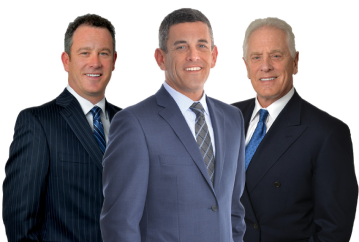What Should You Do After a Car Accident?
Car accidents happen – even to the most careful and responsible drivers. After a motor vehicle collision, you might decide to pursue a claim against the other driver. To support your version of the crash, you’ll need to gather the appropriate evidence. Here are six things you should collect after a car accident.
2. Personal Information: What details should the drivers exchange?
3. Witness Statements: What information can I gather from witnesses?
5. Your Version of Events: What should I recall about the accident?
6. All Relevant Records: What documents should I keep?
1. Photo Evidence
After an accident, both drivers may have a different version of events. Physical evidence like photos can help you prove the other driver was reckless or negligent and therefore responsible for the collision. To help support your recollection, take photos of the scene, including:
- Scene of the accident
- Any skid marks on the road
- Injuries before medical attention
- Traffic control signals and signs
- Road conditions (i.e. potholes)
- Weather conditions (i.e. snow or ice)
- Vehicle damage sustained
2. Personal Information
After a motor vehicle accident, do not let the other driver leave the scene without exchanging information. In the event of a hit-and-run, try to at least get the car’s license plate number. Basic details to gather include:
- Name
- Phone number
- Address
- License
- Insurance
- Plate number
If the other driver claims to not have their license on them, request their car registration or insurance card. If you’re involved in an accident with someone driving for a business, get the employer’s name and contact information.
3. Witness Statements
After the accident, look for witnesses who might have seen what occurred and could support your claim. Ask for the following information:
- Statement
- Contact info
- Photos or videos
If your version of events is challenged in court, having a witness statement to back up your claims could be crucial to the case.
4. Accident Report
When the police arrive at the scene, they will gather information for an official accident report. This document is public record and should include:
- Who was at fault
- Vehicle information
- Any damaged property
You have the right to obtain a copy of the official report from the police station, which could be especially helpful if the other driver is deemed at fault.
5. Your Version of Events
It’s important to develop your own version of events as soon as possible. Your recollection of the accident scene should include the following detailed information about:
- What happened before the accident
- Your recollection of the collision itself
- What occurred after the accident
Having a clear timeline of events and specific details about the accident can help ensure your recollection stays consistent throughout the case.
6. All Relevant Records
Always seek medical treatment following a car accident. In addition to your doctor visits, keep detailed records of the following as your claim unfolds:
- Vehicle repairs
- Hospital visits
- Medications related to accident
- Time off work
- Health insurance statements
Keeping these records can help to prove any injuries sustained were not pre-existing conditions. In some cases, the accident may have resulted in lost wages.
After a car accident, you should focus on your recovery. If the insurance company is trying to place the blame on you when a negligent driver caused your injuries, get our team involved. To pursue a claim, contact one of our car accident attorneys today.






